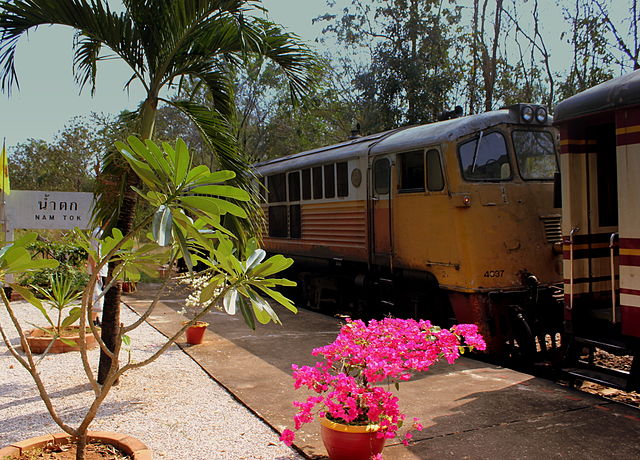China launched its first battery-powered locomotive in Thailand.

February 06, 2023
China Railway Rolling Stock Corporation (CRRC) Dalian Co. Ltd.’s first battery-powered locomotive was launched on Wednesday in Thailand to aid the country's efforts in improving its railway service while cutting carbon emissions. The locomotive testing was successfully conducted by the State Railway of Thailand at the Bang Sue Grand Station situated in Bangkok.
Saksayam Chidchob, Transport Minister of Thailand, said that the country is encouraging the use of renewable energy, which is also environmentally friendly and will replace the usage of fuel energy in the transportation system of Thailand. It is an effort to achieve the commitment of Thailand to bringing greenhouse gas emissions down by 20 to 25 percent by 2030.
The cooperation between Thailand and China on railways was highly spoken about by Saksayam. "Thailand and China have been cooperating in various aspects of railway development," he said, "Thailand hopes to develop railway technology cooperation with countries around the world including China, and the success of this test marks significant progress in the battery-powered locomotive project."
The governor of the State Railways of Thailand, Nirut Maneephan, said the development of a locomotive powered by battery is a part of a plan to improve the railway services’ efficiency. CRRC Dalian and Energy Absolute Public Company Limited (EA) of the Southeast Asia country came together and jointly developed the battery-powered locomotive.
The battery-powered locomotive made in China meets Thailand’s needs in terms of production costs and the requirements of the government of Thailand for energy conservation and emission reduction, said The EA’s deputy chief executive officer, Amorn Sapthaweekul.
The battery-powered locomotive was developed for passenger and general freight, according to CRCC Dalian. The locomotive which has six axles is capable of hauling 2500-ton freight trains at a speed of 70 kmph or 1000-ton passenger train at 100 kmph.
Ardent efforts are being made toward the conversion of diesel trains to battery electric trains to create a cleaner environment and lower fuel costs for railways worldwide. According to Stratview Research, a market research company, in the Asia-Pacific region, China is one of the biggest rail industry hubs and is creating a huge demand for railway batteries.
Railway Battery Market Highlights
The crisis in the battery supply chain paired with the travel restrictions caused major revenue losses to industry stakeholders in the first year of the pandemic with a notable decline of 3.0% in 2019-2020. However, the industry has been gradually rebounding from the year 2021. The growth in the adoption of autonomous and high-speed railways is creating ample opportunities for both lead-acid and lithium-ion batteries. Overall, the railway battery market is likely to rebound at a modest CAGR of 2.4%, in the long run, to reach US$ 0.5 Billion in 2027. Long service life, low maintenance cost, and reduced cost are the indispensable focus areas of the leading players.